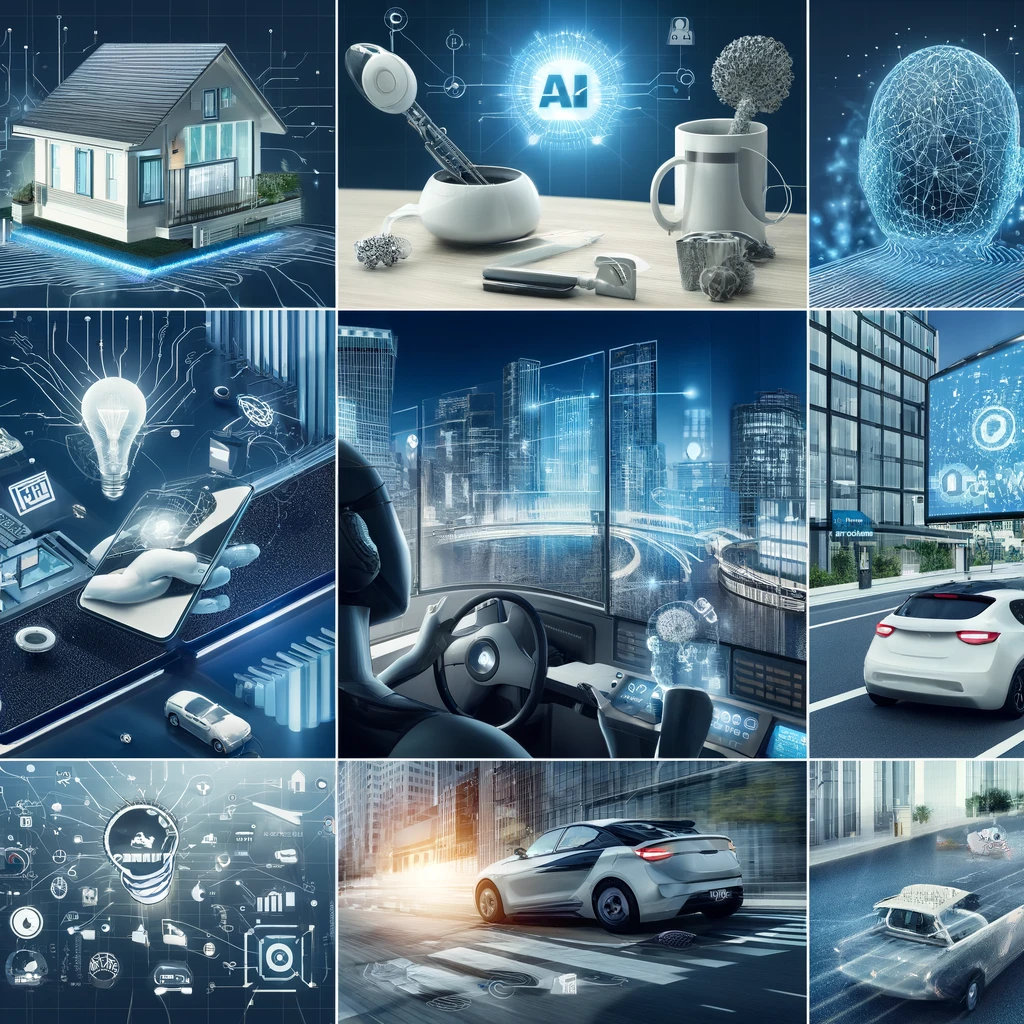Introduction
The surge of Artificial Intelligence (AI) into our daily lives is more than a technological revolution; it’s a practical shift towards smarter, more efficient living. From homes and hospitals to roads and mobile devices, AI’s influence is profound and pervasive. This blog post delves into the various practical applications of AI that are transforming our everyday activities, demonstrating how this technology is no longer just about sophisticated algorithms but about real-world solutions.
AI at Home: Automation and Comfort
Smart home technology, driven by AI, is revolutionizing our living environments. AI in home automation is not just about convenience but also about efficiency and energy management, tailoring home settings to personal preferences and behaviors.
Highlighted Features:
- Smart Thermostats and Lighting: AI learns and predicts your preferences to adjust the home environment automatically, saving energy and enhancing comfort.
- Enhanced Security: Through facial recognition and anomaly detection, AI improves home security, alerting homeowners to unusual activities.
AI on the Road: Transforming Transportation
Autonomous driving technology exemplifies AI’s impact on transportation. These vehicles use AI to navigate, reduce human error, and improve safety, offering a glimpse into the future of transport.
Transportation Innovations:
- Autonomous Vehicles: AI processes data from various sensors to operate vehicles safely without human intervention.
- Traffic Management: AI systems optimize traffic flow, reducing congestion and travel time through smart city infrastructure.
Healthcare Revolutionized by AI
AI in healthcare is perhaps one of the most life-changing applications, with tools that provide predictive insights and assist in treatment, making healthcare more accurate and accessible.
Key Medical Advancements:
- Predictive Health Monitoring: AI algorithms analyze health data to predict and prevent potential diseases before they develop.
- AI-Assisted Surgery: Robots, powered by AI, assist in surgical procedures, enhancing precision and reducing recovery times.
Education Enhanced by AI
AI’s role in education is transforming traditional teaching methods by providing personalized learning experiences and automating administrative tasks.
Educational Impacts:
- Personalized Learning Algorithms: AI tailors educational content to fit individual student needs, improving engagement and outcomes.
- Efficiency in Administration: AI automates grading and record-keeping, freeing up educators to focus on interactive and creative teaching methods.
AI in Consumer and Business Sectors
AI is not limited to personal use; it extends its capabilities to business operations, enhancing efficiency and customer experiences.
Business Applications:
- Customer Service Bots: AI-driven chatbots handle routine customer queries efficiently, enhancing service quality.
- Supply Chain Optimization: AI predicts inventory needs and manages logistics, streamlining operations and reducing costs.
Pros and Cons of AI in Daily Life
| Pros | Cons |
|---|---|
| Improved efficiency and automation | Privacy and security concerns |
| Enhanced accuracy and decision-making | Potential job displacement |
| Personalized services and interactions | Dependence on technology can lead to loss of skills |
Web Ratings and Consumer Sentiments
Online reviews and expert opinions on AI applications are generally positive, praising the enhanced capabilities and efficiencies provided. However, concerns about privacy and the ethical use of AI remain significant discussion points.
FAQs About Everyday AI
- How does AI improve home energy management?
- AI optimizes the use of heating, cooling, and lighting based on your daily patterns and environmental conditions, reducing waste and costs.
- What are the safety benefits of autonomous vehicles?
- By reducing human error, autonomous vehicles promise to lower accident rates and enhance road safety.
- Can AI in healthcare replace human doctors?
- While AI provides tools for diagnosis and management, it complements rather than replaces human medical professionals, ensuring more effective and personalized care.
… (additional FAQs would continue up to 10 as needed)
Conclusion
As AI continues to evolve, its practical applications in everyday life are becoming more innovative and impactful. While it offers numerous benefits, managing its challenges—especially regarding ethics and privacy—is crucial. By harnessing AI responsibly, we can enhance our daily lives, making our routines more efficient and our environments smarter. The future of AI promises even more integration and innovation, driving forward a world where technology and practicality are inherently linked.

